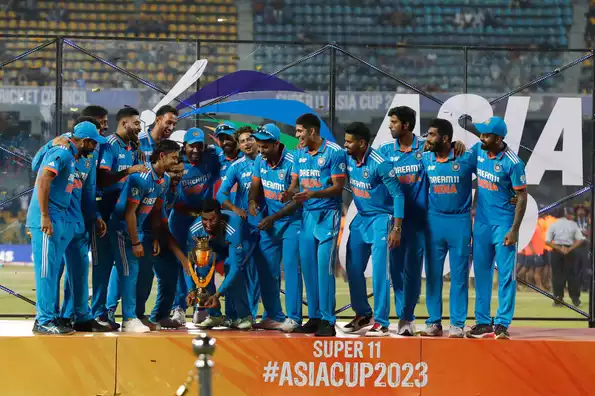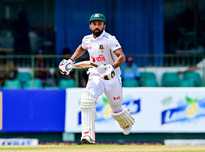The Asia Cup tournament is showing promising signs of progress, with a growing sense of optimism replacing previous uncertainties stemming from tensions between India and Pakistan.
While details are yet to be finalized, a formal decision is anticipated next week. The Asian Cricket Council (ACC) is aiming to release the schedule for the six-team tournament during the first week of July, coinciding with their expected convention.

If everything proceeds as planned, the ACC is reportedly targeting a September start, with September 10 as the likely date for the T20 format tournament to begin. Participating teams include:
Promotional activities for the tournament have already commenced.
The UAE remains the leading contender to host the Asia Cup. However, discussions are ongoing regarding a potential hybrid format. Although India is the designated host, the ACC previously decided that when either India or Pakistan is scheduled to host the Asia Cup, the tournament should be held at a neutral venue.
Uncertainty surrounding the tournament arose after the terror attack in Pahalgam in April. The situation worsened following India's Operation Sindoor against Pakistan in May, which raised serious questions about the tournament's future. Calls for India to boycott Pakistan in multilateral events also increased. Currently, India does not participate in bilateral cricket with Pakistan. There was even speculation that India's boycott of Pakistan in global events would be discussed at the next ICC meeting.
Recent developments in global cricket suggest a shift in direction. The International Cricket Council (ICC) recently released the schedules for two major events:
India and Pakistan are scheduled to compete against each other in both tournaments – first on October 5 in Colombo, and then on June 14 at Edgbaston.
While officials from the BCCI, ACC, and ICC have refrained from public comments on the matter, it seems that cricketing relations between the two rivals will continue, at least in global events. These matches are major revenue drivers for world cricket. While India and the Board of Control for Cricket in India (BCCI) are not necessarily dependent on revenue from these high-profile matches, governing bodies like the ICC, the ACC, and their member boards rely heavily on them.
Newer articles
Older articles
 Cervical Cancer: Don't Ignore These 5 Subtle Warning Signs
Cervical Cancer: Don't Ignore These 5 Subtle Warning Signs
 Rishabh Pant's Revolutionary Cricket Reshaping the Game, Says Greg Chappell
Rishabh Pant's Revolutionary Cricket Reshaping the Game, Says Greg Chappell
 Bangladesh Test Captain Najmul Hossain Shanto Resigns After Sri Lanka Defeat
Bangladesh Test Captain Najmul Hossain Shanto Resigns After Sri Lanka Defeat
 Greg Chappell Hails Rishabh Pant's 'Game-Changing' Batting Display Against England
Greg Chappell Hails Rishabh Pant's 'Game-Changing' Batting Display Against England
 Bezos-Backed Methane-Tracking Satellite Suffers Mission-Ending Failure in Orbit
Bezos-Backed Methane-Tracking Satellite Suffers Mission-Ending Failure in Orbit
 Gujarat Cricket Association Set to Debut T20 League in 2025-26 Season
Gujarat Cricket Association Set to Debut T20 League in 2025-26 Season
 England Captain Stokes Praises Opening Duo After Record-Breaking Chase Against India
England Captain Stokes Praises Opening Duo After Record-Breaking Chase Against India
 'The Traitors' Star Apoorva Mukhija Accuses Sudhanshu Pandey of Abusive Language, Misogyny Following Show's Finale
'The Traitors' Star Apoorva Mukhija Accuses Sudhanshu Pandey of Abusive Language, Misogyny Following Show's Finale
 Bangladesh's Shadman Islam Rallying Behind Teammates After Day 1 Batting Woes vs. Sri Lanka
Bangladesh's Shadman Islam Rallying Behind Teammates After Day 1 Batting Woes vs. Sri Lanka
 JioHotstar Scores Big: India-England Test Series and WTC Final Break Streaming Records
JioHotstar Scores Big: India-England Test Series and WTC Final Break Streaming Records